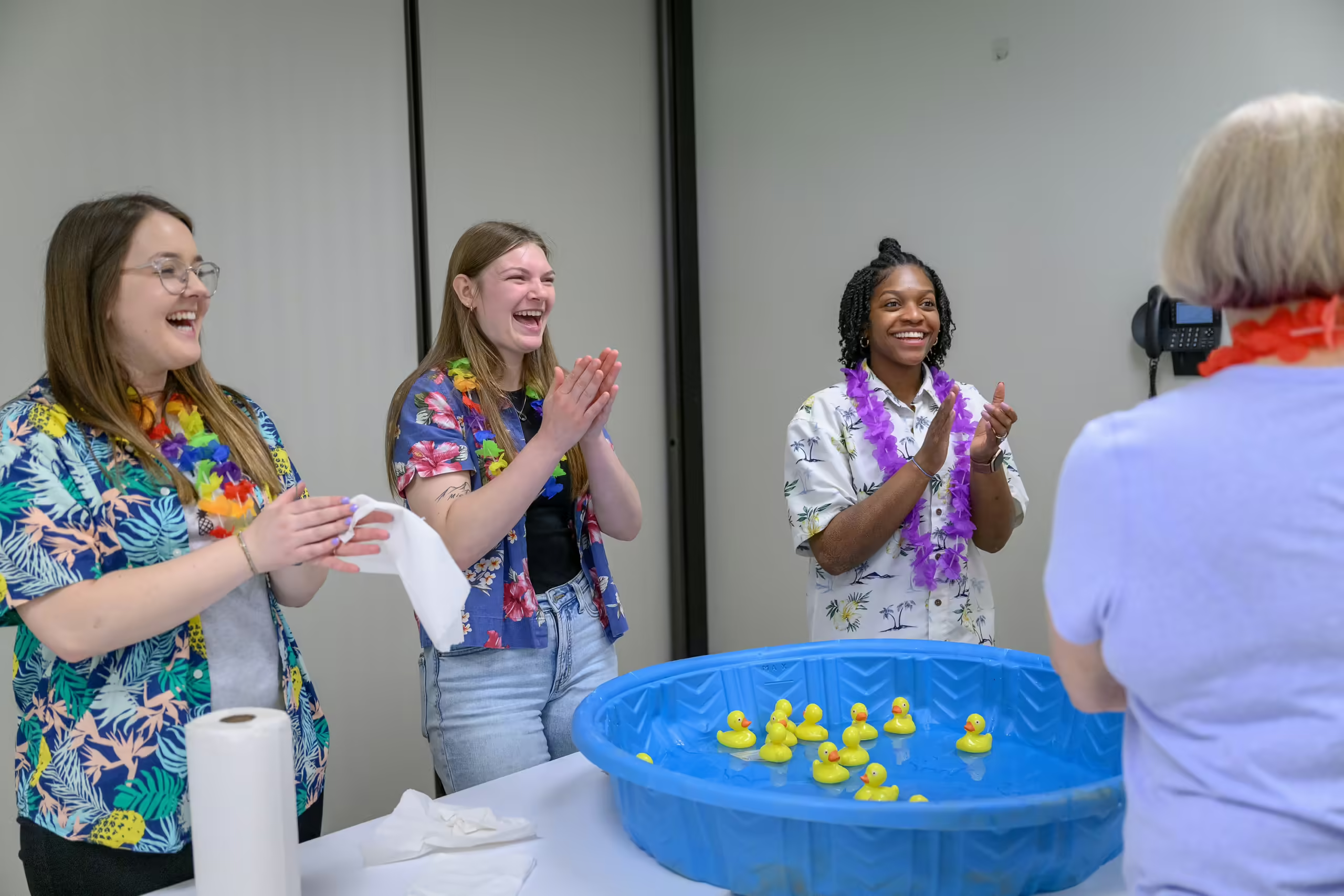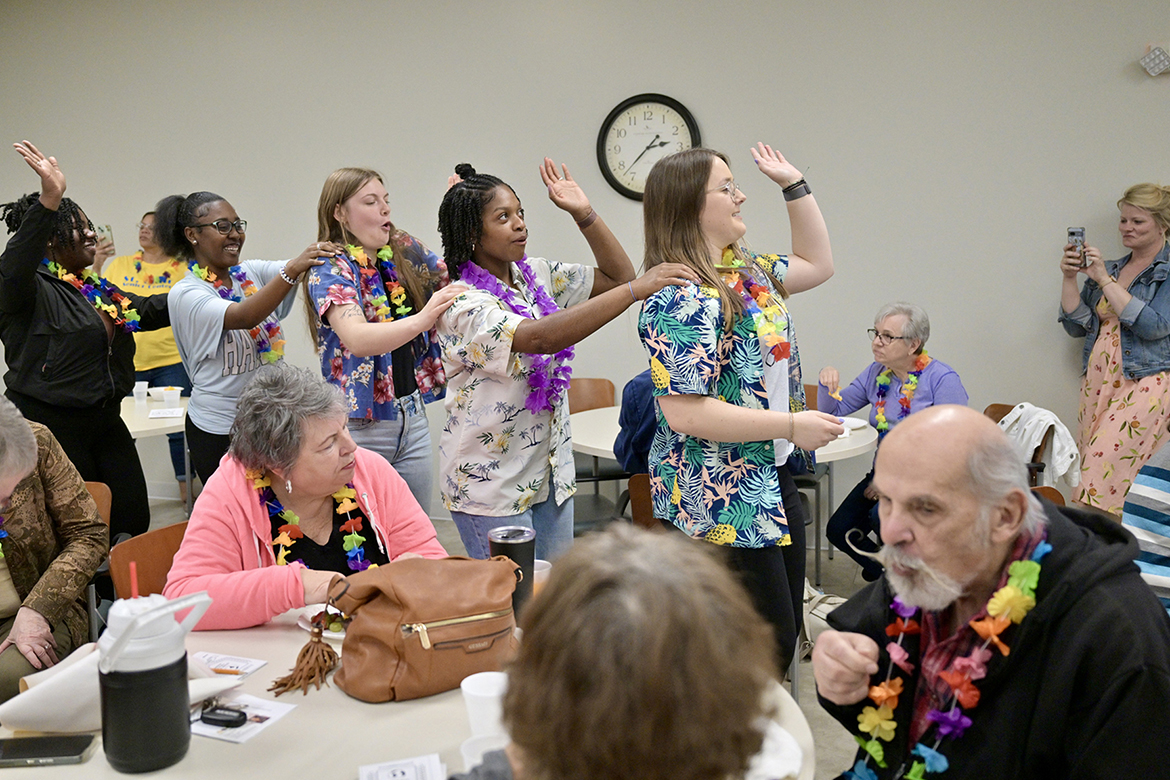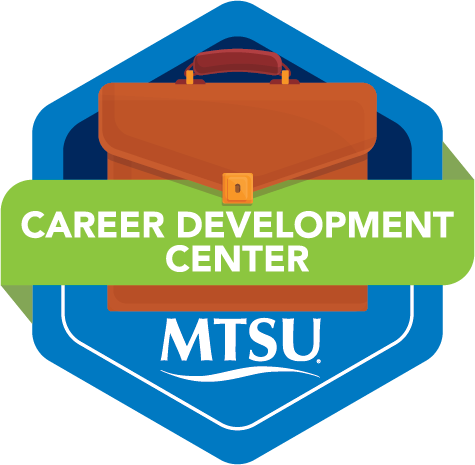
Human Development and Family Science
Develop workshops and programs to work with families and improve their quality of life.
Human Development and Family Science, B.S.
Human Development and Family Science is offered through the College of Behavioral and Health Sciences at MTSU.
The curriculum leading to a major in Human Development and Family Science prepares for broad areas of the field. Electives may be used to build strong combinations with other fields of interest.
Human Development and Family Science is a nationally approved program that offers preparation for a student to become a Certified Family Life Educator (CFLE). Completion of this program leads to career opportunities with family life education, social service agencies, day care programs (care giving and administration), crisis intervention programs, and senior citizen services; in business as consultants; in medical settings as child life specialists; and as advocates for children and families.
News Briefs

MTSU students ‘cruise’ into fun for course work in Aging Health and Development class [+VIDEO]
Middle Tennessee State University Human Development and Family Science students recently went full speed ahead with a landlocked “cruise” party held at St. Clair Street Senior Center.[ Read More ]
News Briefs

MTSU students ‘cruise’ into fun for course work in Aging Health and Development class [+VIDEO]
Middle Tennessee State University Human Development and Family Science students recently went full speed ahead with a landlocked “cruise” party held at St. Clair Street Senior Center.[ Read More ]
Related Media

Human Development and Family Science, B.S.
With the opportunity to learn about the entire family, individuals who choose to major in Human Development and Family Science find career opportunities in many settings. Students who choose to pursue the nationally approved program that allows one to become a Certified Family Life Educator (CFLE) may find opportunities in family life education, social service agencies, day care programs, crisis intervention programs, and senior citizen services. The demand for those with people-oriented skills is expected to increase in the coming years. Additional career options include adoption and/or foster care worker, behavior modification specialist, human development and family advocate, childcare provider and administrator, child life specialist, family and child case worker, youth counselor, and elder care advocate or administrator.
Examples of career options include:
- Adoption and/or foster care worker
- Behavior modification specialist
- Child Development and family advocate
- Child care provider and administrator
- Child life specialist
- Crisis intervention service provider
- Early intervention specialist
- Elder care advocate, service provider, or administrator
- Family and child case worker
- Family and consumer sciences extension agent
- Family life educator
- Family resource and support center professional
- Social services director
- Youth counselor
Employers of MTSU alumni include
- Adam’s Place
- Bethany Christian Services (adoption)
- CASA (Court Appointed Special Advocate) of Rutherford Co.
- Child Advocacy Center
- Community Care of Rutherford County
- Division of Children’s Services
- Eden Alternative
- Head Start
- Kids R Kids
- LeBonheur Children’s Hospital
- Middle Tennessee State University: University College; College of Behavioral and HealthSciences
- Murfreesboro Domestic Violence Program
- Special Kids
- Stones River Manor Assisted Living
- Sunnington Assisted Living
- Tennessee Early Intervention System
- University of Tennessee Extension
- Youth Villages

MTSU’s Career Development Center
MTSU offers a comprehensive Career Development Center that serves students throughout the full student experience and beyond. They collaborate with faculty and staff to equip students with the tools to be marketable to the world of work and continuing education.
Students can schedule an appointment or check online resources and job boards at mtsu.edu/career.
Students can find current internship opportunities by talking to faculty and visiting the University job and internship board called Handshake.
Wondering what you can do with your major? Check out our What Can I Do with A Major In guides.



CONTACT US












